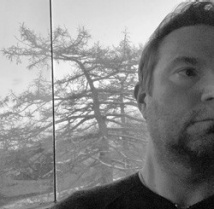Dr. leBrasseur is an Associate Professor of Landscape Architecture at Â鶹´«Ã½ within the Department of Plant, Food and Environmental Sciences. He is a licensed landscape architect, environmental psychologist, researcher, and peri-urbanist and the Director of the interdisciplinary Green Infrastructure Performance Lab applying investigative knowledge towards climate adaptive reorganisation of multifunctional landscapes. His research encourages designers to to think about complex landscape-individual processes in relational terms, whereby integrative urbanisms can apply diverse frameworks to understand built and natural morphologies of people and place. Rick has received research grants from the Canadian Tri-Council and the US Environmental Protection Agency.
He received his PhD from the University of Edinburgh, a Master of Landscape Architecture from the University of Michigan’s School of Environment and Natural Resources. and a Bachelor of Landscape Architecture from the University of Connecticut.
Prior to his academic appointment, Rick worked at Hargreaves Associates, Charles Anderson Atelier, SWA Group, CRJA, EDAW, RHAA and contributed to multi-scale projects including the award-winning Olympic Sculpture Park. His collaborative designs and research has been, published, reviewed, and featured in Landscape Journal, Journal of Landscape Architecture, CNN, The New York Times, The Royal Institute of British Architects, Landscape Architecture Magazine, Urban Land, among others.
Past exhibits include The San Francisco Design Museum and The Walker Art Center. He has juried professional and student work at MIT, UC Berkeley, Harvard University and Bartlett School of Architecture. Rick has collaborated with prominent design leaders such as Weiss/Manfredi, Olson-Kundig, I.M. Pei, HOK, and ARUP.
Rick has delivered keynote speeches and conference presentations at the International Association for Landscape Ecology, the International Low Impact Development Conference, the Environmental & Design Research Association, and the International Society of Participatory Mapping. He has led seminars on green infrastructure to the US Forest Service, the Salt Lake County Watershed Symposium, The Conservation Fund, and LEED's neighbourhood developement for the US Green Building Council.
Rick’s tenure included his endowed appointment as the Sumner Margetts Professor of Landscape Architecture at Utah State University while leading the Green Space Institute. He was the Developer and Director of UC Berkeley’s Sustainable Environmental Design & Stewardship Extension Program, focusing on urban ecology and sustainable technologies. He served as Executive Director of The Center for Green Infrastructure Design within the University of Utah’s City & Metropolitan Planning Department providing research, outreach, and land-use planning assistance to communities and administrative agencies in one of the United State’s most rapidly expanding regions.
His upcoming book focuses on peri-rural green infrastructure and the impacts of development upon human-based ecosystem services in order to create physically, psychologically and socially meaningful descriptions of the environments in which we live and interact.

